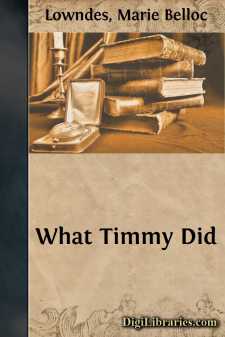Categories
- Antiques & Collectibles 13
- Architecture 36
- Art 48
- Bibles 22
- Biography & Autobiography 816
- Body, Mind & Spirit 145
- Business & Economics 28
- Children's Books 18
- Children's Fiction 14
- Computers 4
- Cooking 94
- Crafts & Hobbies 4
- Drama 346
- Education 58
- Family & Relationships 59
- Fiction 11831
- Foreign Language Study 3
- Games 19
- Gardening 17
- Health & Fitness 34
- History 1378
- House & Home 1
- Humor 147
- Juvenile Fiction 1873
- Juvenile Nonfiction 202
- Language Arts & Disciplines 89
- Law 16
- Literary Collections 686
- Literary Criticism 179
- Mathematics 13
- Medical 41
- Music 40
- Nature 179
- Non-Classifiable 1768
- Performing Arts 7
- Periodicals 1453
- Philosophy 66
- Photography 2
- Poetry 897
- Political Science 203
- Psychology 45
- Reference 154
- Religion 516
- Science 126
- Self-Help 86
- Social Science 82
- Sports & Recreation 34
- Study Aids 3
- Technology & Engineering 59
- Transportation 23
- Travel 463
- True Crime 29
Our website is made possible by displaying online advertisements to our visitors.
Please consider supporting us by disabling your ad blocker.
Good Old Anna
Categories:
Description:
Excerpt
CHAPTER I
“And now,” asked Miss Forsyth thoughtfully, “and now, my dear Mary, what, may I ask, are you going to do about your good old Anna?”
“Do about Anna?” repeated the other. “I don’t quite understand what you mean.”
In her heart Mrs. Otway thought she understood very well what her old friend, Miss Forsyth, meant by the question. For it was Wednesday, the 5th of August, 1914. England had just declared war on Germany, and Anna was Mrs. Otway’s faithful, highly valued German servant.
Miss Forsyth was one of those rare people who always require an answer to a question, and who also (which is rarer still) seldom speak without having first thought out what they are about to say. It was this quality of mind, far more than the fact that she had been born, sixty years ago, in the Palace at Witanbury, which gave her the position she held in the society of the cathedral town.
But this time she herself went on speaking: “In your place I should think very seriously of sending Anna back to Germany.” There was an unusual note of hesitation and of doubt in her voice. As a rule Miss Forsyth knew exactly what she thought about everything, and what she herself would be minded to do in any particular case.
But the other lady, incensed at what she considered uncalled-for, even rather impertinent advice, replied sharply, “I shouldn’t think of doing anything so unkind and so unjust! Why, because the powers of evil have conquered—I mean by that the dreadful German military party—should I behave unjustly to a faithful old German woman who has been with me—let me see—why, who has been with me exactly eighteen years? With the exception of a married niece with whom she went and stayed in Berlin three autumns ago, my poor old Anna hasn’t a relation left in Germany. Her whole life is centred in me—or perhaps I ought to say in Rose. She was the only nurse Rose ever had.”
“And yet she has remained typically German,” observed Miss Forsyth irrelevantly.
“Of course she has!” cried Mrs. Otway quickly. “And that is why we are both so much attached to her. Anna has all the virtues of the German woman; she is faithful, kindly, industrious, and thrifty.”
“But, Mary, has it not occurred to you that you will find it very awkward sometimes?” Again without waiting for an answer, Miss Forsyth went on: “Our working people have long felt it very hard that there should be so many Germans in England, taking away their jobs.”
“They have only themselves to thank for that,” said Mrs. Otway, with more sharpness than was usual with an exceptionally kindly and amiable nature. “Germans are much more industrious than our people are, and they are content with less wages. Also you must forgive me if I say, dear Miss Forsyth, that I don’t quite see what the jealousy of the average working-man, or, for the matter of that, of the average mechanic, has to do with my good old Anna, especially at such a time as this.”
“Don’t you really?” Miss Forsyth looked curiously into the other’s flushed and still fair, delicately tinted face....








